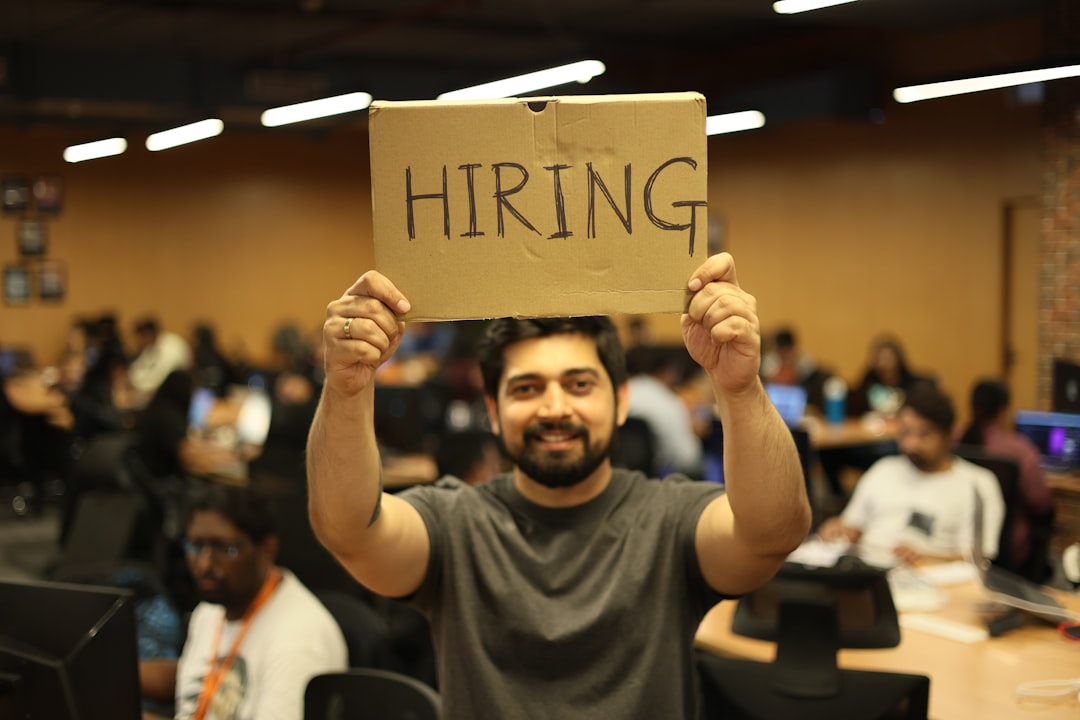No products in the cart.
Gen Z Faces Hiring Hurdles in a Tech-Driven Job Market
Gen Z is facing a daunting job market as automation and economic policies freeze out new graduates. Discover strategies to thrive in this landscape.
San Francisco, USA — The year 2025 has dawned, but for many in Gen Z, it feels less like a new beginning and more like a dystopian sequel. As they step into the job market, a chilling reality awaits: the confluence of automation and a ‘no hire, no fire’ economy is creating a hiring freeze that feels more like a hiring nightmare. With machines taking over tasks and companies clinging to their existing workforce, fresh graduates are finding themselves at a crossroads, grappling with their future in a world where AI reigns supreme.
To understand the gravity of the situation, it’s essential to acknowledge the backdrop against which this drama unfolds. The pandemic-induced shift to remote work accelerated digital transformation across industries, and while it opened doors to flexibility and innovation, it also entrenched a new reality: automation is not just a trend; it’s a fundamental shift in how we work. Companies are increasingly turning to technology to streamline processes and cut costs, leaving new graduates in the lurch.

Consider the story of Maya, a recent graduate from a California university. Armed with a degree in marketing, she envisioned her first job as a launchpad into a fulfilling career. Instead, she found herself in an endless loop of application rejections. “I’ve applied to over a hundred positions,” Maya lamented, her voice tinged with frustration. “I feel like I’m just shouting into the void.” Like many of her peers, she is caught in a paradox. Companies are hesitant to hire new talent, fearing the costs associated with onboarding and training in an uncertain market, while simultaneously relying on automation to replace positions that once required human touch.
 Young Professionals
Young ProfessionalsDeepwatch’s Workforce Adjustments Reflect Broader Trends in Cybersecurity
Deepwatch's decision to lay off employees highlights shifting dynamics in the cybersecurity sector driven by AI advancements.
This ‘no hire, no fire’ strategy, a term coined by industry analysts, reflects a broader trend where businesses prioritize retention over expansion. The logic is simple: with economic fluctuations, companies are reluctant to take on new employees when they can maintain their existing workforce and leverage technology to enhance productivity.
Armed with a degree in marketing, she envisioned her first job as a launchpad into a fulfilling career.
Yet, the implications for Gen Z are profound. A recent survey conducted by the National Association of Colleges and Employers revealed that 50% of employers are looking to reduce their hiring in the coming year, with many attributing this to increased automation and a desire to minimize risks associated with onboarding new personnel [1]. This creates a bottleneck effect, where the influx of eager graduates competes for a significantly reduced number of openings, leading to a climate of competition that feels more like a gladiatorial arena than a collaborative environment.
Nevertheless, amidst this daunting landscape, there are rays of hope. Organizations and educational institutions are beginning to recognize the need for adaptation. Universities are pivoting, integrating AI and machine learning courses into their curricula, and fostering partnerships with tech companies to better prepare graduates for the evolving job market. This proactive approach is crucial; it signals to students that while the road may be fraught with challenges, there are tangible steps being taken to bridge the gap between education and employment.
Employers, too, are starting to acknowledge the importance of nurturing new talent. Programs designed to upskill existing employees can also create pathways for entry-level candidates. Companies that invest in mentorship and training initiatives not only enhance their workforce but also cultivate a culture of innovation that can drive future growth. As businesses adapt, they may find that the fresh perspectives and skills that new graduates bring are invaluable assets in navigating an increasingly complex market.
 Career Advice
Career AdviceWork-life balance – tips for those who work from home
Discover essential tips for achieving work-life balance in remote work settings, enhancing both productivity and personal well-being.
Read More →Moreover, the rise of the gig economy presents another avenue for Gen Z to explore. Freelancing and contract work have become more prevalent, allowing young professionals to carve out their niches, gain experience, and build portfolios while searching for full-time positions. Platforms like Upwork and Fiverr have democratized access to job opportunities, enabling individuals to market their skills globally. For many, this may be the key to unlocking their potential in an economy that feels closed off.
As we look to the future, the narrative is not entirely bleak. The landscape is shifting, and with it comes the possibility for transformation. Gen Z may be facing unprecedented challenges, but they are also equipped with tools and resources that previous generations did not have. The digital age has armed them with the ability to adapt, to learn, and to innovate.
Companies that invest in mentorship and training initiatives not only enhance their workforce but also cultivate a culture of innovation that can drive future growth.
Ultimately, the question remains: how will this generation respond? Will they succumb to the pressures of a constricted job market, or will they rise to the occasion, leveraging their unique skills and perspectives to reshape the workforce? The answer lies in their resilience and capacity for reinvention. As we move toward 2026 and beyond, the ability to navigate this new terrain will define not only their careers but also the future of work itself.











